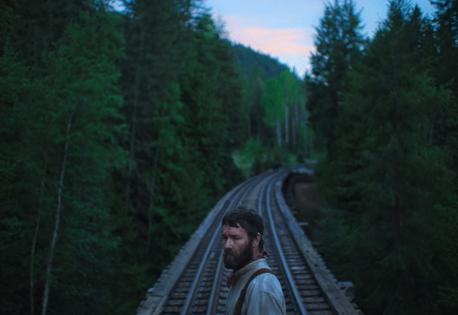Review: Joel Edgerton has never been better than in the beautifully evocative 'Train Dreams'
Published in Entertainment News
"Train Dreams" is the kind of movie that people often say they want more of, but when one actually comes along they don't quite know what to do with it. Told with an unassuming, gentle simplicity that grows into an accumulating emotional power, the film manages to feel very small and specific while also vast and expansive.
It pokes around in some of the great mysteries of humanity — what gives a life meaning or purpose? — in a way that feels lyrical, lovely and never unduly ponderous. There is something special about "Train Dreams" even as its built-in modesty makes it feel awkward to lavish it with excess praise.
An adaptation of a 2011 novella by Denis Johnson, the film is directed by Clint Bentley, who co-wrote the screenplay with Greg Kwedar. The duo were recently nominated for an Academy Award for the screenplay to the prison drama "Sing Sing," but it is their earlier project "The Jockey" that this feels more in line with, full of evocative photography and quiet moments heavy with deeper meaning.
The story concerns Robert Grainier (Joel Edgerton), a character name that gets repeated so often in the lilting, perceptive narration by Will Patton that it genuinely comes to feel like that of a real person, someone you maybe didn't know directly but heard about from time to time via a family member or friend. Grainier lives his entire life in a relatively confined stretch of the Pacific Northwest woodlands from the late 1800s onto the 1960s, a logger and railroad worker who would somehow never see the ocean and never speak into a telephone.
The majority of the story takes place at the turn of the 20th century and the World War I era, as Grainier eventually marries a woman named Gladys (Felicity Jones) and they build a small cabin in the woods and have a baby. His work takes him away from the family for long stretches, making his time at home all the more precious. A sudden tragedy sends his life off into a different direction, one marked by ghostly isolation.
The storytelling is done mostly in episodic glimpses, with few conventional dialogue scenes, so the film comes to feel like the fragments of a memory. Aside from Edgerton and Jones, there are brief but memorable encounters with characters played by the likes of Clifton Collins Jr., Paul Schneider and John Diehl, with William H. Macy as an old-timer explosives expert and Kerry Condon as a forest ranger both getting extra scenes to make an impact.
The cinematography by Adolpho Veloso, who also shot "The Jockey," is particularly fine, working in a boxy 3:2 aspect ratio to capture the lush expanses of the land where Grainier lives and works. The production design by Alexandra Schaller and costume design by Dakota Keller and Malgosia Turzanska feel appropriately lived-in and evoke the period without feeling precious. The film's score is by Bryce Dessner (of the group the National), who also co-wrote the evocative end credits song with singer Nick Cave.
There has always been a sturdiness about Edgerton, a sense of solid forthrightness that is put to great use here in what may be his most fully realized performance. Grainier is a man of few words, which makes the few times he does speak of his feelings all the more powerful, and Edgerton is able to convey his thoughts and emotions through his eyes and body, as the way he looks at something often says as much as if he actually put it into words.
Grainier recognizes when he has grown too old for the strenuous, dangerous logging work by which he has long made his living when the men around him seem different — also with the advent of the chain saw. That Edgerton seems so credible as a man of the early 20th century also makes him believable as someone who has seen his moment pass him by. Times change, "Train Dreams" seems to consider, but the great wonders of life remain eternal.
———
'TRAIN DREAMS'
MPA rating: PG-13 (for some violence and sexuality)
Running time: 1:42
How to watch: In limited theatrical release Nov. 7; on Netflix Nov. 21
———
©2025 Los Angeles Times. Visit latimes.com. Distributed by Tribune Content Agency, LLC.













Comments